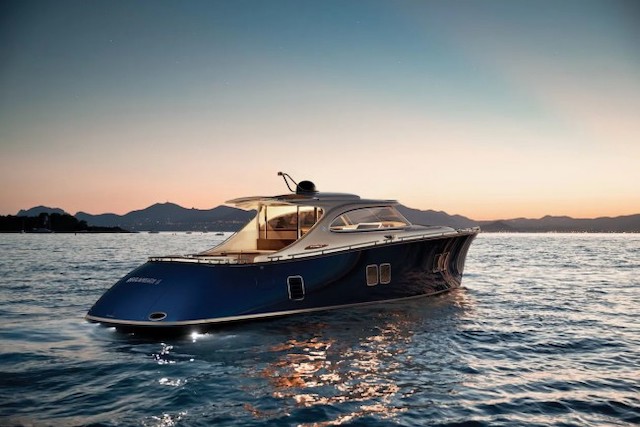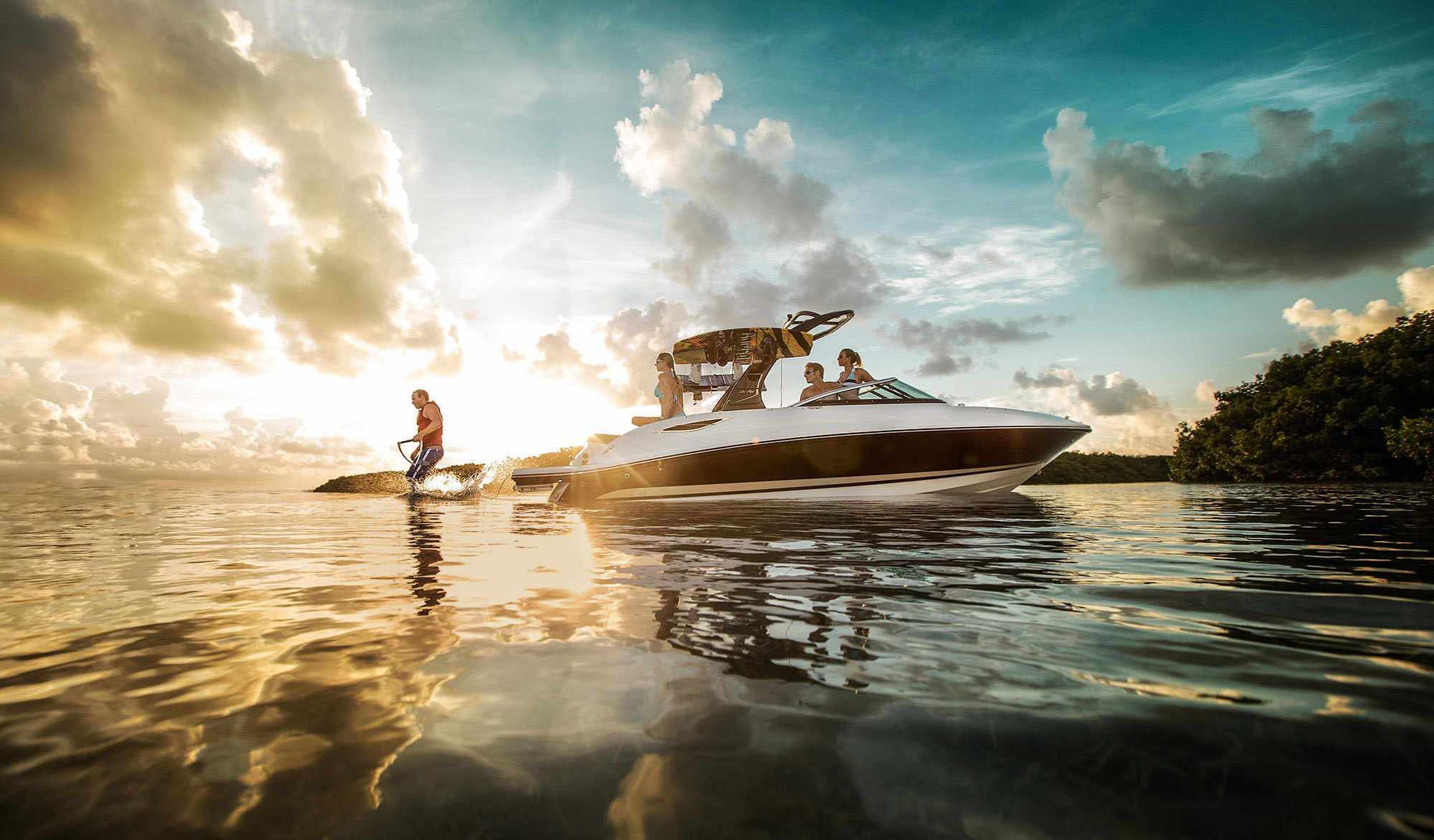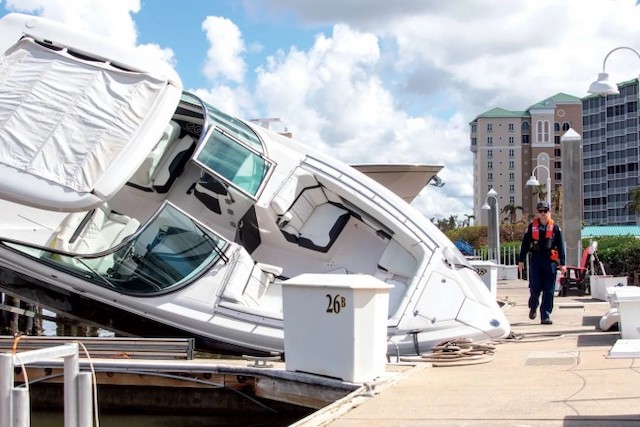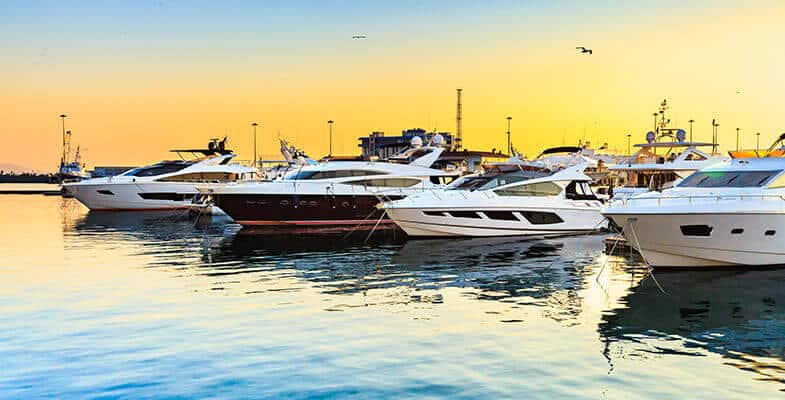Ready to buy that new boat? Beware of these insurance policy problems

Curtis Stokes tries to be nice while leveling with the people who call him. They're all eager to buy boats, and the conversations start out friendly enough, but far too often these days, the broker based in Fort Lauderdale, Florida, ultimately finds himself talking to a dial tone. "People hang up on me. They think I don't want to sell them the boat," he says. "That's not the case at all."
The callers are frustrated because he tells them that before they can even start shopping for a boat, they need to get pre-approved for an insurance policy. According to numerous industry experts, the biggest hurdle to buying a boat right now is not high inflation or rising interest rates or even the slim pickings on the market following the pandemic's boat-buying craze. Instead, the biggest challenge buyers face is an inability to get insurance, especially if they plan to cruise in Florida.
"I tell all our salespeople: As soon as you have a guy sniffing around a boat, the first call he has to make is to the insurance people," says Tim Derrico, director of sales for HMY Yachts in West Palm Beach, Florida. "It used to be that you could call the insurance agent and get a binder the same day. Those days are over. This takes time now."

The problem is not new, but experts say it's getting worse. Challenges with getting boat insurance started after Superstorm Sandy in 2012. Since then, severely destructive storms have continued to make U.S. landfall, particularly in Florida, which has more registered boats than any other state. There was Irma in 2017, Michael in 2018 and, most recently, Ian in autumn 2022.
With every major storm, and all the billions of dollars in losses, insurance companies keep tightening the parameters for getting a boat policy. The squeeze is so strict at this point, experts say, that it's choking off the ability for some people to buy a boat at all. "In some cases, rates have doubled in the past few years," says broker Jimmy Rogers of OneWater Yacht Group in Dunedin, Florida.
As brutal as it is to hear, paying double is sometimes a good deal, according to a hull and liability specialty agent who helps boaters get insurance policies with multiple carriers, and who asked to remain anonymous. In Florida, he says, he now has clients being forced to pay four to five times the usual rates. "None of the standard carriers want to write a policy south of Georgia," he says.
Soundings reached out to numerous marine insurance companies for this article. None responded to multiple requests for comment. But leading yacht brokers in Florida say they fear insurance challenges could become insurmountable for boat buyers if a storm the size of Hurricane Ian hits in Southeast Florida next. "If that kind of storm came through Fort Lauderdale or Palm Beach, I don't think any companies would be underwriting policies right now," Derrico says.

Insurers are laser-focused on three things, industry experts say: a boat's size, its age and where it will be used. In terms of size, yacht brokers say, insurance companies typically hit the brakes if someone is trying to buy a boat that's 10 or 12 feet larger than the largest boat they've had in the past. "It's especially true with absentee owners," according to Rogers, the guy who lives in New York and keeps his boat in Florida.
These are the types of frustrated folks who have been hanging up the phone on Stokes after he asks them about their previous boat-ownership experience. "They may say that 30 years ago, they had a 20-foot ski boat, and I start to explain that it's a hard insurance market," Stokes says. "I tell them to explore insurance before they spend any time looking at boats."
His advice is to contact insurers for pre-approval as a first step in the boat-shopping process. Choose a boat that is slightly older, slightly bigger and slightly more expensive than the actual boat you think you'll want to buy, and then see if you can get pre-approved for an insurance policy. "At that point, they will know what they need to do to get pre-approved," Stokes says.
In some cases, insurers require anyone moving up in size to take classes from a licensed captain. After a specified number of hours on board, the captain can vouch for the boat buyer's abilities.
"I have a client who used to drive 20-foot boats in Mississippi, and he wanted to buy a 54-foot Riviera," Rogers says. "He needs 50 hours of captain training. At the end of the time period, if the captain feels confident, he can write the letter and the insurance company will sign off. That has been invaluable, like a magic bullet for people trying to buy boats sized near 50 to 65 feet."

In other cases, the boat buyer can get a policy, but only if he agrees to hire a full-time captain, sometimes at a cost of more than $100,000 a year. "We have guys who want to go from a 33-foot Sea Ray Sundancer to a 70-foot Ferretti," says the specialty insurance agent. "The insurers are like, 'No way, you're not operating this boat on your own.'"
In terms of insuring older boats, Stokes says companies have increasingly been moving the goalposts on what "older" means. "First, they said they didn't want any boats 40 years and older," he says. "Then, it became 30 years. Then, it became 20 years."
It's not impossible to get a policy on older boats, Stokes adds, "but your options are so limited that if you can get insurance on an older boat, you are probably going to be paying a premium, because there are just so few companies left in the industry."
The problem with insuring older boats is especially acute among hulls from the early 2000s, whose power plants can be costly to repair, according to the specialty insurance agent. "Let's say you have the twin inboard boat that you bought in 2003. Maybe it's a 42-footer," he says. "If you're getting insured by a standard carrier, you're paying $2,500 in a new boat but double that for an older boat. Companies are fearful that the engines are getting older. They won't even cover mechanical breakdowns on those boats."

And then there's the issue of where the boat will be used. If buyers plan to cruise somewhere less hurricane-prone, like the Great Lakes, they're going to have an easier time getting insurance than boaters who plan to cruise through or base their boats in Florida.
"My guess is you're going to see the underwriters limit the number of boats that can be in a hurricane zone," Derrico says. "You're going to have to have a written-in-stone, I-can-haul-the-boat-here-where-it's-safe type of policy."
Derrico's advice to his clients at HMY is to set up a hurricane haul-out plan before shopping for the boat, while getting pre-approval for the insurance. Have a place reserved where the insurance company can see that the boat will be hauled in case of an oncoming storm.
"It might cost you $3,000 to $5,000 or even more, but then you have a spot," Derrico says. "What you're going to see happening next is that if you don't abide by your plan, you're done."

The demand for haul-out space is likely to become so intense to keep insurers happy, he says, that HMY is looking to create more of it.
"As a company, we're digging into a piece of property right now to buy," he says. "It's going to be a requirement from underwriters, so if you own a piece of property that can haul a lot of boats, everybody is going to need it."
And, Rogers says, boaters should be prepared to adjust their cruising plans. Don't expect to be able to set an itinerary in Florida during even a single day of hurricane season, from June through November.
"It used to be that you could get an insurance-company waiver to head south before the end of hurricane season," he says. "But you just can't get that anymore."